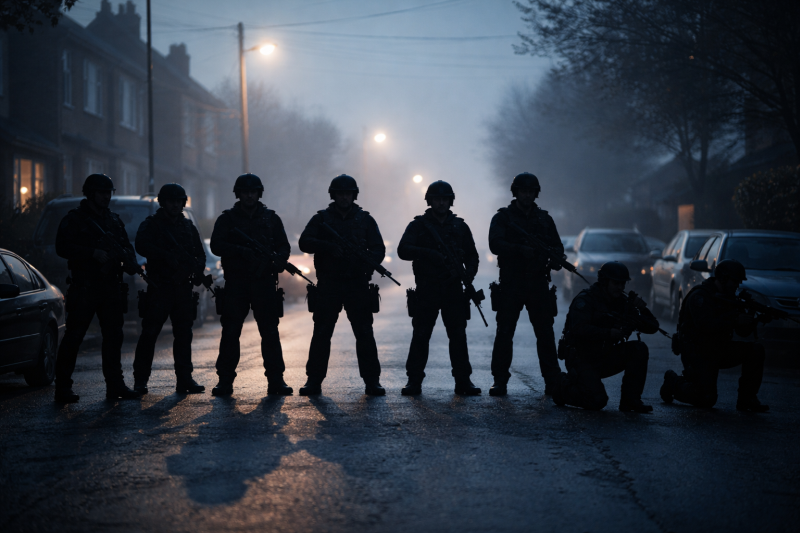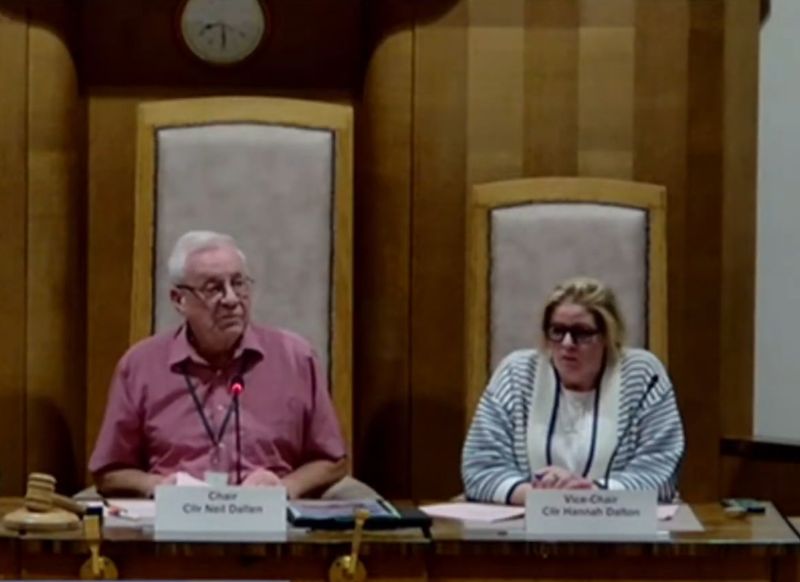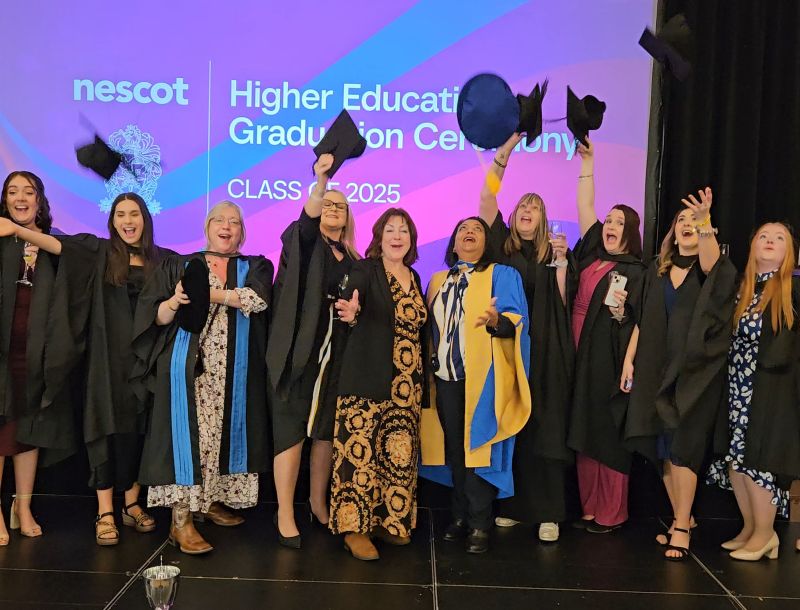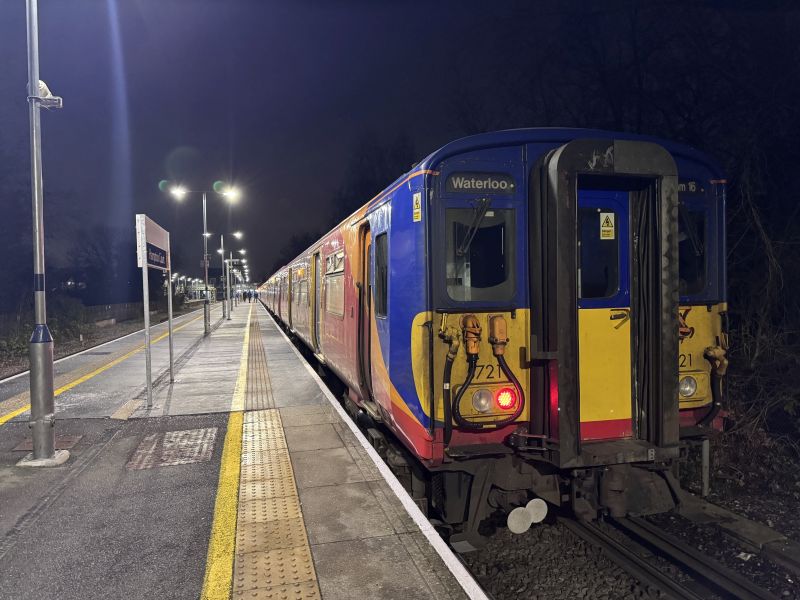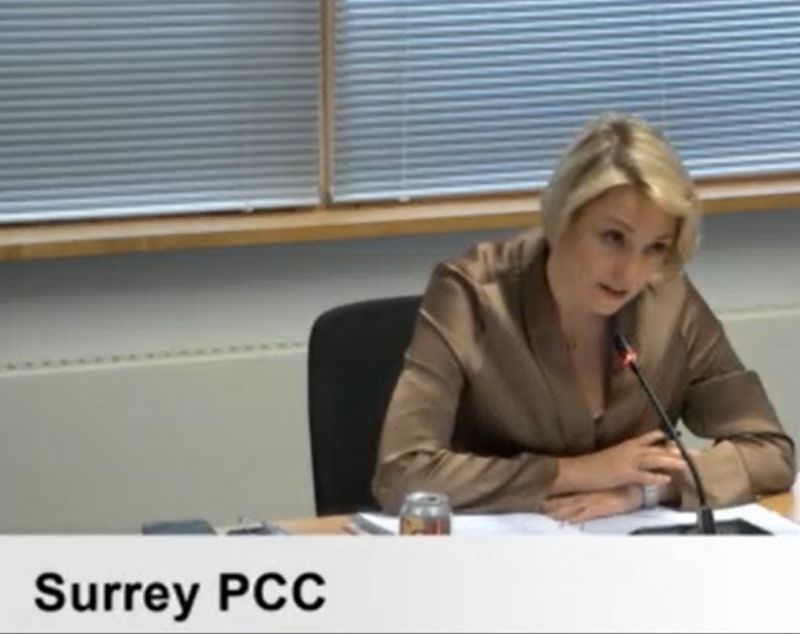Epsom Choral Society ends term on a high note
21st June, St Andrews, Northey Avenue: Fresh from their triumph at this year’s Leith Hill Music Festival, Epsom Choral Society presented an end-of-term programme consisting of three wonderful contemporary items on a theme of jazz and improvisation. Plus a fourth – which earned its place by virtue of being a world premiere! The whole evening worked like a giant crescendo, starting quietly and ending with Will Todd’s magnificent and sometimes wild Mass in Blue.
Jazz as a genre poses huge demands on a traditional choir. It’s no longer enough just to master the notes, the rhythms and the dynamics. The whole concept of flexible swing rhythms can feel positively alien to those steeped in classical music. Full marks, therefore, to ECS conductor Julian Collings, for helping the choir to overcome what is, in essence, a new language to give us an evening of singing that was convincing, exuberant and full of vitality.
Hats off also to the supporting cast: saxophonist Alex Flower, bassist Ben Summers, drummer Tom Lee and pianist Peter Jaekel. Ultimate accolade must go to soprano Lisa Swayne for her stratospheric ululations that took Mass in Blue to a different level.
Opening the concert was Ola Gjeilo’s (1978– ) Evening Prayer. Gjeilo’s reflective, not necessarily religious, compositions with sumptuous harmonies have made him a great favourite with choirs on both sides of the Atlantic. Composed in 2010, the powerful words of St Augustine were reverently and warmly sung, with all three protagonists – choir, pianist and saxophonist – creating an atmosphere of contemplation within a framework of gentle and optional improvisation.
And thus, having been transported heavenwards, we were brought down to earth with a bump!
This fun little ditty True Story (words by Michael Rosen) was one of a song-set of ten by Russell Hepplewhite, who conceived of inviting ten living poets to document his/her personal response to the current world, and setting these to music. It’s not clear whether the full set is ever intended to be performed all together, since they are being individually premiered this year by choirs from around the country.
The song chosen for ECS is set very simply for choir and piano – which makes it accessible for many choirs. Excellent diction was vital to the storytelling; along with a spirited enjoyment of the text – where one man’s ecstasy at the birth of his son is mirrored against another man’s wonderment at the hatching of a pigeon’s egg.
The John Rutter (1945– ) of the Birthday Madrigals is a totally different Rutter from the one of popular Christmas carols. These songs are settings of Elizabethan texts infused with the spirit of jazz, whilst perpetuating the great tradition of English part songs. That Rutter is capable of this level of technical mastery of the jazz idiom, together with his lightness of touch and superb invention, makes for a set of five miniatures indispensable to the choral anthology.
And ECS rose to the challenges, giving us an impressive array of singing – from the nimble, joyful and carefree to soulful blending of voices; from fearless high spirits to judicious balancing of the ladies’ long, lyrical phrases against harmonious humming from the gentlemen. Optional piano accompaniment in the a cappella numbers provided subtle support for tricky shifting harmonies. What a treat to take us to the interval!
Ever since the 10th century if not before, man has made music to glorify his gods – from the monks’ Gregorian chants to the masses of Haydn and Beethoven, each reflecting the conventions of their time. In 1991, Paco Peña created a fiery and rumbustious Misa Flamenca to celebrate the Almighty. So it seems appropriate, inevitable even, that in 2003, Will Todd (1970– ) should decide to make use of a contemporary idiom to fashion his own offering.
Mass in Blue needs small but vital supporting resources – soprano solo, piano, bass, saxophone, drum kit. But smallness in scale does not mean smallness in achievements. Quite the contrary. What shines through is a superbly confident writing technique that is strong, clear, propulsive and above all, enjoyable for both singers and listeners alike.
No one should under-estimate the amount of hard work that the choir must have put in to meet the merciless technical challenges. There are sliding intricacies of jazzy rhythms, seemingly indecipherable within the confines of traditional notation; there are rapid changes of tempi, metre, dynamics and everything else going; there is the uber-cool, quasi-fugal and multi-layered Benedictus – all of these demanding agile and committed singing to maintain the driving momentum. Members of ECS embraced all these hurdles and more, and with the return of the mighty soprano adding fire to the quadraphonic build-up to a bone-shakingly thrilling finale.
Yes, we were gripped. All of us.
Job done. BRAVISSIMO!
Lynda Chang is a local musician and advocate of live music
Image: Mass in Blue – Lisa Swayne and Julian Collings



